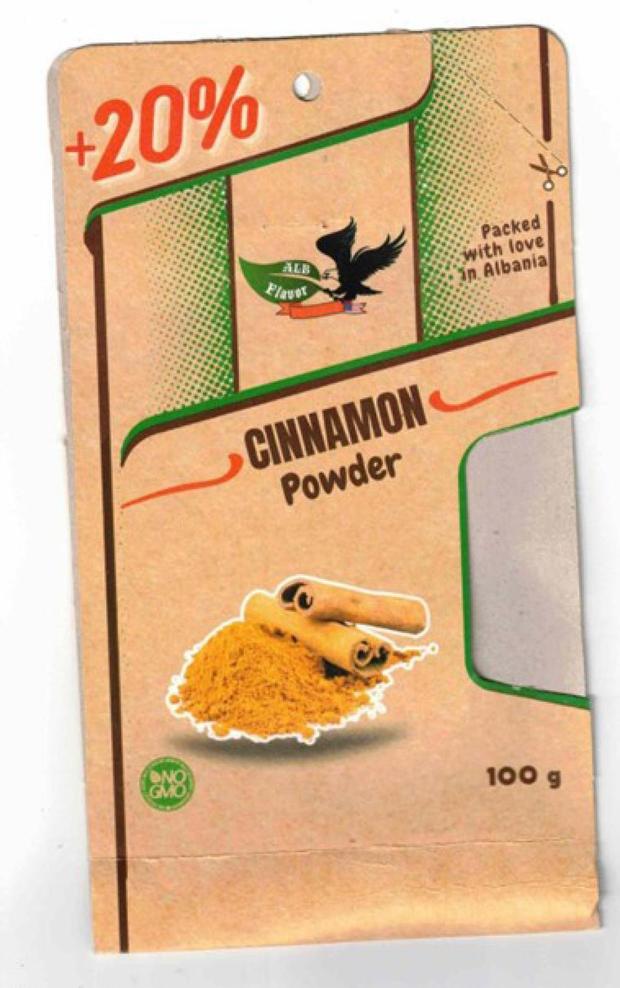Federal health authorities are once again urging people to check their spice racks and cabinets for certain cinnamon products after testing found lead in multiple additional brands.
The Food and Drug Administration on Tuesday said it was recommending recalls of nine brands of ground cinnamon products with elevated lead levels, ranging from 2.03 to 7.01 parts per million (ppm).
“These levels are significantly lower than the levels of lead associated with the WanaBana cinnamon apple puree and applesauce products recalled in the fall of 2023, which had between 2,270 ppm to 5,110 ppm lead in the cinnamon,” the agency noted.
Still, the FDA is advising people to throw out and not buy the ground cinnamon products on its list, saying that “prolonged exposure may be unsafe and could contribute to elevated levels of lead in the blood.”
Short-term exposure to very low levels of lead may not result in symptoms, but longer-term exposure to the metal can cause permanent damage to the central nervous system, resulting in learning disorders and other developmental defects in children, according to the FDA. Chronic lead exposure is associated with kidney dysfunction, hypertension and neurocognitive effects in adults, the agency noted.
Lead-contaminated paint, water, dust and soil are the most recognized lead hazards, but other products have been found to contain the metal as well, including candies, spices, ceremonial powders and alternative medicines, according to the Centers for Disease Control and Prevention.
“Awareness of other sources, such as spices adulterated with lead chromate, is important,” the CDC stated in a weekly report published earlier this month.
U.S. Food and Drug Administration
Lead chromate, also known as chrome yellow, is an inorganic compound used as a pigment. The highly toxic chemical is no longer used in house paint, but is still used in marine and industrial paints as well as to add color to plastics, according to the American Chemical Society.
American Spices of Ozone Park, New York, is recalling Spice Class brand ground cinnamon distributed to retailers in the New York City area between Dec.1, 2023, and May 15, 2024, according to a recall notice posted on Monday by the FDA.
Packed in 7-ounce and 12-ounce plastic jars with a Dec. 12, 2026, expiration date, the recall follows an analysis by New York state officials that found elevated levels of lead in the product.
Consumers should stop using the cinnamon immediately and return it to the place of purchase for a refund. Those with questions can call: 1-917-532-6768.
Separately, Advance Food International of Maspeth, New York, is recalling Shahzada brand cinnamon powder in 7-ounce packing because it also has the potential to be contaminated with elevated levels of lead.
The recalled cinnamon powder was distributed to retailers in four states: Connecticut, Massachusetts, New Jersey and New York between Jan. 1, 2024, and May 24, 2024, according to a notice posted Monday by the FDA.
Those with questions can call the company at: 1-718-482-0123.
The recalls follow another on Friday by ALB-USA Enterprises of Bronx, New York, involving ALB Flavor brand cinnamon powder for the same reason, stated a notice posted by the FDA.
U.S. Food and Drug Administration
U.S. Food and Drug Administration
Distributed to retailers in Connecticut, Massachusetts, Michigan and New York between Dec. 15, 2022, and May 13, 2024, the recalled cinnamon powder is packaged in a plastic bag with a net weight of 100 grams.
The product contained a best-before-date of Aug. 30, 2025. Those with questions can call: 1-917-922-5627 or 1-929-431-8505.
The FDA on Thursday issued a public health alert for Elmhurst, New York-based El Servidor brand ground cinnamon sold by Mannan Supermarket because the product was also found to contain elevated levels of lead.
U.S. Food and Drug Administration
The agency has recommended the distributor voluntarily recall the product, the FDA stated.
The FDA in March issued a public health alert urging consumers against buying half a dozen ground cinnamon products because they were found to contain elevated levels of lead.
That warning came after nationwide recalls of lead-tainted applesauce linked to 519 reported poisonings, mostly involving young children.




